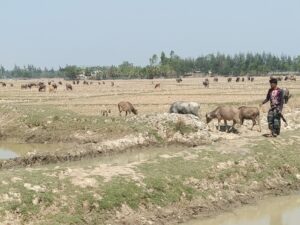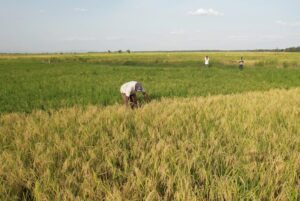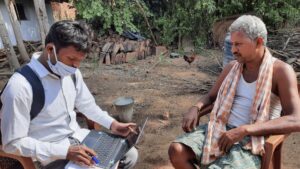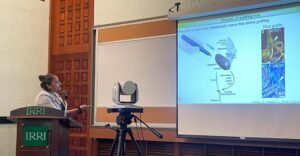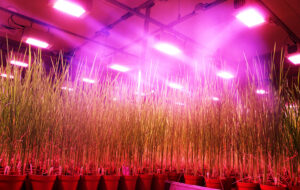
The Asia Society and the International Rice Research Institute task force report, Never an Empty Bowl: Sustaining Food Security in Asia, was the focus of the Ministerial Roundtable Meeting on rice at the Third International Rice Congress (IRC2010) in Hanoi, Vietnam, on 9 November.
The Ministerial Roundtable Meeting was chaired by Vietnam’s Minister of Agriculture and Rural Development Cao Duc Phat and IRRI Director General Robert Zeigler. Representing the Asia Society at the meeting was Dr. Peter Timmer, the task force’s principal advisor. Officials from 19 countries (Australia, Bangladesh, Cambodia, China, Egypt, France, India, Indonesia, Iran, Iraq, Italy, Laos, Malaysia, Myanmar, Nigeria, Saudi Arabia, Sri Lanka, Thailand, and Vietnam; written statements provided by Brunei Darussalam and Singapore) and seven international and aid organizations, including the World Bank, the International Fund for Agricultural Development, the UN Development Programme, and the Asian Development Bank, participated in the meeting.

Participants shared their insights into how the task force report fits into their own specific national and institutional food security plans and expressed unanimous support for the report’s findings and recommendations. All participants agreed that implementing the four major recommendations contained in the report is critical to achieving food security in the long term and improving access to affordable rice in Asia and throughout the world. The report specifically recommended raising and sustaining the productivity of rice farmers in ways that conserve water, land, and energy-intensive inputs, while also building resilience to the expected impacts of climate change; improving the environment for rural development, including farm and nonfarm activities locally, nationally, and regionally, with renewed attention to how to stabilize domestic food economies; providing safety nets and more nutritious foods to the rural and urban poor so that they can lead productive lives even in the face of significant risks and vulnerabilities; and providing regional public goods for sustainable food security in Asia.
One common theme that emerged from the meeting was how Asia’s growing population and economic development will impact the availability of rice for future generations. Participants widely agreed on the need for greater investments into strengthening the global rice economy, particularly in Asia, to reduce supply vulnerability and prevent the emergence of another food crisis like the one that occurred in 2008.
“There was great enthusiasm for the messages contained in the report and for the clarity in which they were presented,” said Dr. Timmer after the Ministerial Roundtable Meeting. “The next step is for participating officials to take the report back to their countries (and institutions) and use it as a framework to help analyze and formulate their own food security policies.”
_________________________________________
Mr. Hsu is a senior program officer for policy studies at the Asia Society.

